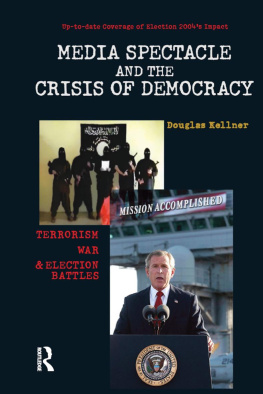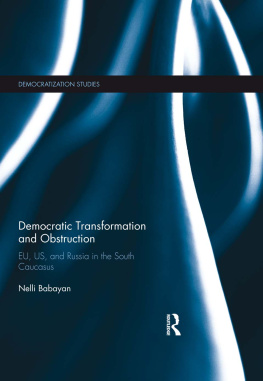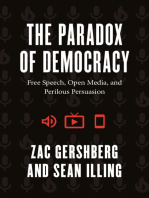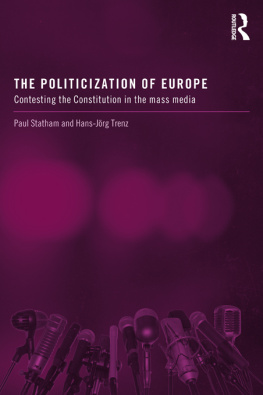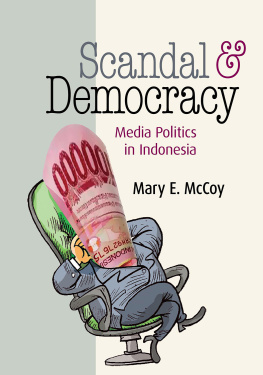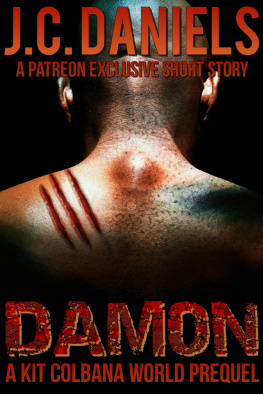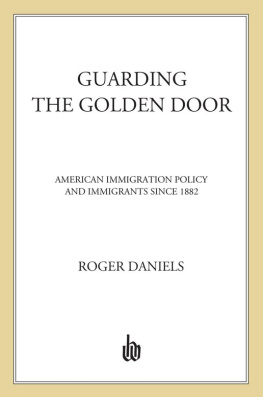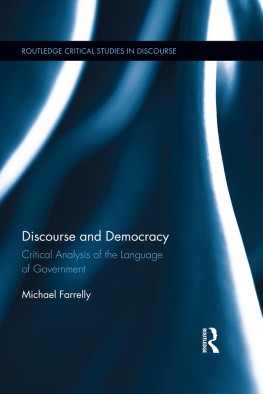Fight for Democracy
Fight for Democracy
The ANC and the Media in South Africa
GLENDA DANIELS

Published in South Africa by:
Wits University Press
1 Jan Smuts Avenue
Johannesburg
www.witspress.co.za
Copyright Glenda Daniels 2012
First published 2012
ISBN 978-1-86814-568-3
All rights reserved. No part of this publication may be reproduced, stored in a retrieval system, or transmitted in any form or by any means, electronic, mechanical, photocopying, recording or otherwise, without the written permission of the publisher, except in accordance with the provisions of the Copyright Act, Act 98 of 1978.
Edited by Monica Seeber
Cover design and layout by Hothouse South Africa
Printed and bound by Creda Communications
CONTENTS
Dedication
This book is dedicated to journalists
ACKNOWLEDGMENTS
This book came out of two processes: first, my passionate attachment to press freedom and then the indulgence of this attachment in a huge task a thesis on the role of the media in a democracy, unraveling the politics between the media, the state and the ANC. The essence of that thesis has been distilled in this book. I thank my supervisor, Professor Sheila Meintjes, for her consistent encouragement, her warm support, and for creating and generously hosting in her home in Norwood for about a year, in 2009 a wonderful group. We called ourselves the Politics and Media Discussion Group.
This group met once a month and we took turns to present papers. We debated issues related to media and democracy while eating croissants and muffins from fine china. The group consisted of the Wits Journalism veterans, Professor Anton Harber, Professor Franz Kruger and Lesley Cowling; the head of the School of Communications at the University of Johannesburg, Professor Nathalie Hyde-Clarke; the Open Society Initiative of Southern Africa media and ICT manager, Dr Dumisani Moyo; the Save Public Broadcaster Campaign coordinator, Kate Skinner; Professor Jane Duncan from Rhodes University; Sheila and me.
I am indebted to and respectful of my MA supervisor Peter Hudson for introducing me to the world of political philosophy. He was generous with his time, his ideas, his reading and commenting and his lending of books. My interest in political philosophy began with him in my undergraduate years at Wits in the 1980s. His intellectual rigour was such an inspiration that I returned to do an MA with him in 2006. It was a great experience, learning with some life experience behind one.
To the colleagues who gave their time enthusiastically to be interviewed, to put across the point of view of journalism, particularly Mondli Makhanya, Justice Malala, Abdul Milazi, Hopewell Radebe and Rehana Rossouw thank you. But there were also many others who I interviewed who gave their time generously.
I acknowledge the Swiss-South Africa Joint Research Programme (SSAJRP) for its financial support in the last two years of the PhD. My research was located within the SSAJRP Safeguarding Democracy: Contests of Memory and Heritage project. It was a great interdisciplinary opportunity for all of us in the team to share ideas related to democracy, memory, history and philosophy with our Swiss partners at Basel University. I also received the National Research Foundation prestigious scholarship for three years, 2008-2010, for which I am grateful.
I would also like to mention two important organisations in my recent development. First is the M&G Centre for Investigative Journalism (amaBhun-gane, or dung beetles, who dig up dirt) where I spent just over a year, 20112012, as advocacy coordinator, before I joined Wits Journalism. AmaB afforded me a good opportunity to learn about access to information problems, the Protection of State Information Bill (Secrecy Bill) and to write a fair number of comment and analysis pieces about it. During that period I also served on the Right2Know national and regional structures and so personally witnessed and experienced the impact that civil society pressure and activism can bring to bear upon draconian impediments to democracy, such as the Secrecy Bill. The May 2012 proposed amendments by the ANC, or partial backing down from the draconian nature of the bill, were a testament to the success story of civil society formation, coalitions, and activism even though the State Security Agency rejected these amendments in June 2012. A personal boon from R2K activism has been the media freedom friendships I formed with Kate Skinner and Julie Reid.
For diligent reading and commenting thank you to my friend Heidi Brooks. To the Wits University Press team, Veronica Klipp, Roshan Cader, Melanie Pequeux what a treat to work with you. And copy editor Monica Seeber, from whom I have learned such a lot in a short space of time, especially how to be unsentimental about deleting material thats not necessary, for instance, deep philosophy that can often do more confounding than illuminating thank you. Hothouse South Africa, especially Lisa Platt, did a creative job in translating words into visuals for the design and layout.
To my friends Penny, Tendayi, Amber and Diane your support continues to inspire. It is good also to have a large family who encourage academe, too many to mention all by name but especially Reynaud, Julian, Desiree, Vivienne and Allan. Last, but most importantly, thank you to dear Nigel for your optimistic disposition, wise counsel and consistent encouragement to fight to maintain a free press, freedom of expression and access to information. Now Alex and Ash follow that example and lend the same kind of support to the same issues.
PREFACE
I undertook this work from the position of a practicing journalist. It is a work of advocacy that grew out of my 2010 PhD thesis in the Department of Political Studies, University of the Witwatersrand. I have also added my own experiences from time to time. The particular standpoint ab initio is in support of a press free from party political interference and control. I have always worked in the print media, and therefore I do not, and cannot, hide under an impossible cloak of detachment and objectivity. My position is that journalism makes a contribution to the deepening of democracy in South Africa and my focus is on the print medias role of public watchdog, holding power to account.
This book also examines the view that journalism in this country is shabby, unfair and irresponsible and therefore it needs a statutory media appeals tribunal. It challenges the Protection of State Information Bill (known as the Secrecy Bill) under which journalists would suffer severe penalties including jail sentences for being in possession of a classified document. In addition, disclosures of classified information to reveal criminal activity will be criminalised. Further deliberations on the Bill were postponed to September 2012.
The ANCs lead in a noble fight in exile, and inside the country, for liberation towards a democratic South Africa, can hardly be disputed. However, the irony is that the fight had to be strategically undertaken from exile, largely in secret, because of the nature of the organisation and its military component, and because it was banned inside the country. In this analysis of the relationship between the ANC and the media in South Africa, Ive drawn a picture of highly contentious politics in the ANC vis--vis its support for the Secrecy Bill and a statutory media appeals tribunal (notwithstanding some backing down in 2012), a portrait of an organisation virtually turning against its own project of developing a radical democracy. We should also note the new General Intelligence Bill, which consolidates and centralises the power of a security regime in the making, giving more to the State Security Agency (although this bill has not been dealt with in this book).
Next page

